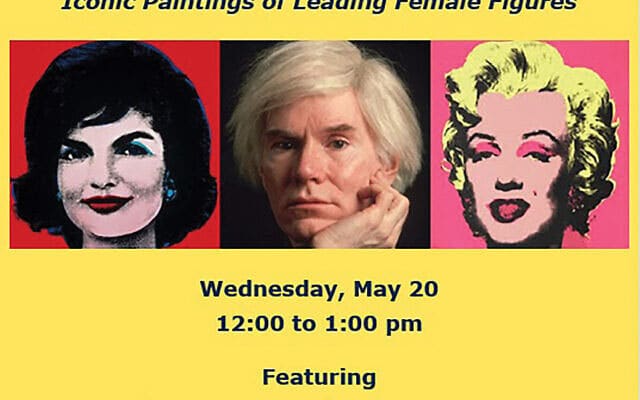 An invitation for an online fundraising event for Hadassah Hospital in Israel. (Photo courtesy of Hadassah)
An invitation for an online fundraising event for Hadassah Hospital in Israel. (Photo courtesy of Hadassah)
This article originally appeared in The New York Jewish Week
The impact of the Covid-19 pandemic is massive, costing hundreds of thousands of lives and millions of jobs. Its effect on philanthropy has been no less serious, with needs rising and donations down significantly.
People are legitimately worried about what’s coming next. And ambiguity is a killer for charitable giving.
One thing is clear: We must take new approaches to engaging our donors.
A primary rule for fundraising is that, when speaking with a potential donor, you never talk about yourself. Rather, focus on the donors: their family, their interests, their commitment to philanthropy and our organization.
But at this unprecedented time, our team of over 100 development volunteers and professionals at Hadassah-The Women’s Zionist Organization of America is finding that sharing our own concerns and anxieties can create important, meaningful connections with supporters.
It makes the link we have with them more human and empathetic.
By speaking personally, we bring ourselves into the work, and people appreciate our addressing the fact that this is an anxious and uncertain time.
While this approach isn’t necessarily translating into more funds, it’s good for enhancing the relationships that we work diligently to cultivate.
We’re having far more success going to existing donors than we are to new people. We’re focusing on looking inward, finding ways to care for those who have for years stood by us.
Now is our opportunity to stand by our donors. How we care for them is more important than ever. Our team made more calls to simply check in and see how people were doing over the first three months than we did in the previous three years. Relationships cannot only be about raising money. During a time of unique human need, our need to act in uniquely human ways only increases.
Throughout the pandemic we have been organizing and implementing virtual gatherings, bringing together donors from around the country to hear from Hadassah doctors, nurses, researchers and other experts.
We have expanded that idea to creating special, personalized videos for our top supporters. We feature greetings from doctors, nurses and top leaders of our hospitals in Jerusalem, working hard to ensure that these special greetings are delivered by someone who has a close relationship with a major donor.
Ordinarily, when someone gives a naming gift to Hadassah hospital, they have the opportunity to visit Israel for a live dedication event. We’ve begun hosting those kinds of events via Zoom. While it’s not quite the same, during a time like this it’s a good substitute that has had some unanticipated benefits.
When a family made a special donation in honor of their mother’s 90th birthday, naming a nursing station in the Sarah Wetsman Davidson Hospital Tower on our Ein Kerem campus, a Zoom dedication included her family, guests and greetings from nurses and Hadassah staff in Israel. Even with thousands of miles separating our U.S. donors and partners in Israel, we were able to create an emotionally compelling program and a birthday celebration that this family will never forget.
While video conferencing tools are not quite the same as sitting with a donor or prospect in their own space, the technology can help organizations save on the two most precious resources they have — time and money.
It’s too early for us to know for sure just how effective our virtual programming has been. It can take years for a major gift to develop — even if the virtual programming is only 85 percent as effective in terms of money raised, it may be a net positive because of the resources saved.
One unifying outcome of this pandemic, when literally everyone has been at risk, has been an overall humanizing effect on the way we approach our work, our donors and our colleagues.
We have invested a great deal of time simply checking on each other, making sure that our friends and partners have the resources they need and the support they want.
Will this be a permanent effect? It’s hard to say for sure. Perhaps fundraising needs to shift and become as much about the very human connections we make while still respecting setting goals and reviewing performance metrics.
This has been a once-in-a-century reminder of how fragile life is and how connected we truly are. We must not forget this lesson.
Personally, I plan to bring into my work — now and in the future — the same kind of mindfulness we’ve been utilizing the past few months. As a manager and a fundraiser, I hope to better balance both aspects of our critical mission in nonprofit development.






















 More news and opinions than at a Shabbat dinner, right in your inbox.
More news and opinions than at a Shabbat dinner, right in your inbox.